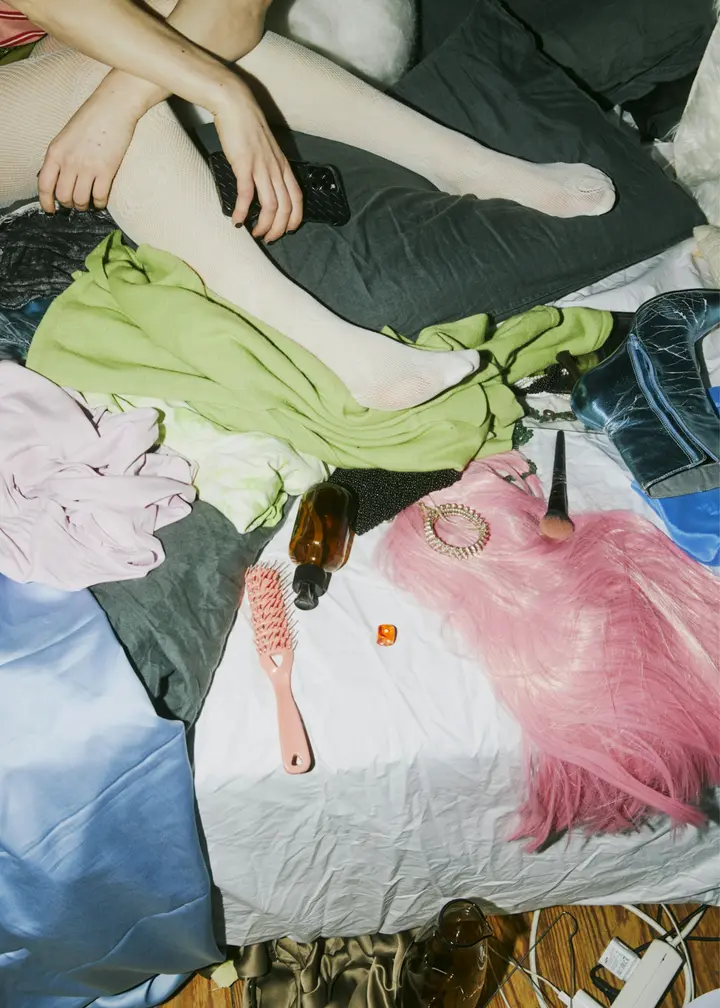
A Messy Person’s Low-Effort Guide to Staying Tidy
Try these expert-approved hacks for maximum tidiness with minimal effort.
As much as we despise the thought of completing house chores, it’s a known fact that cleaning feels good. Not only can it help you de-stress and clear your mind, but it also doubles as a workout, increases productivity, and the end result gives you peace of mind. I mean, is there any better feeling than sleeping in crisp, washed linens or relaxing in a clean smelling, warm bathtub?
However, staying on top of household chores is easier said than done, especially when tidiness doesn’t come naturally. For messy people, cleaning and organizing is incredibly painful, so much so they’ll do just about anything to avoid having to dust surfaces, give their cupboards a detox, or anything that requires a vacuum and mop.
If you can relate, there’s no need to constantly be on the search for the world’s easiest and fastest ways to stay organized so those neat freaks in your life don’t throw continuous criticism at you for your lack of hygiene. We asked self-proclaimed “neat freaks” and founders of professional organizational company TIDEE, Emma Rosham and Michelle Rubin, to provide all the information you need in your life that will help you learn to love cleaning (yes, really) and how to keep every room in your home looking immaculate, with minimal effort.
Can a lifelong messy person learn to become tidy? The short answer… 100%.
According to experts, it can take approximately five-12 days for a new habit to stick, so if you adopt a few new habits starting today then this time next week you’ll be an improved and tidier person, not to mention your home will look impressively different, too.
“As the saying goes, ‘old habits die hard’. It can be hard to stop doing the things you’ve been doing for a long time. If you've always been a messy person then you’re not going to suddenly wake up one day and magically become tidy," Rosham and Rubin explain.
But new, tidy habits can be formed.
“Start setting some achievable daily goals like doing a general tidy. For example, picking up everything on the floor and putting all the dishes away at the end of the day. These little changes can go a long way in helping you become tidy. It’s the desire to want to change, the practice to make it stick and the satisfaction with seeing how it can improve your everyday life.”
What are the most essential cleaning hacks that will help a messy person stay tidy?
If staying tidy doesn't come naturally, Rosham and Rubin share six of their top secrets for getting – and staying – organized.
1. Plan
“Plan what areas of the home or office need to be decluttered and organized, and write your list down. What areas are causing you the most anxiety and stress? Prioritise these areas first and work through the list systematically, tackling one space at a time.”
2. There's a place for everything
“You know the saying 'a place for everything and everything in its place? If you give everything a home, it makes it a cinch to find things when you need them. Things won’t get lost, and order is easily maintained.”
3. Invest in containers and labels
“Invest in storage containers to house your items and ensure they're labeled. Having everything labeled will give you (and the rest of your household members) the best chance of staying organized.”
4. Edit frequently
“Dedicate time – whether it’s weekly, monthly or quarterly – to editing your things. This should apply to every area of your home. For example, on a daily or weekly basis, decant new shopping items into labeled containers in the pantry; on a monthly basis, go through cupboards and donate items no longer needed (be ruthless when it comes to items in your wardrobe).
“One rule we like to stick to which helps us to stay organized is: for every new item in, one must go out!”
5. Book-in repetitive tasks
“Book in those repetitive tasks and make it fun by giving them a name, like ‘Clean Sheets Saturday’ (get household members to strip their beds, help with the washing and make the beds). Play some funky music, name them and make those habits stick! There are even cleaning calendars you can download if you really want to get super organized.”
6. Lose the paper
“Get rid of paper as soon as it comes into the house – deal with it and recycle it. It’s even better if you can get everything online, action it and then move it to a labeled folder in your inbox (for example, ‘Bills: Paid’).”
For more from Emma Rosham and Michelle Rubin, follow them on Instagram @tideelife.
Freshen Up Your Home
Enjoyed This?
Discover more cleaning tips.













